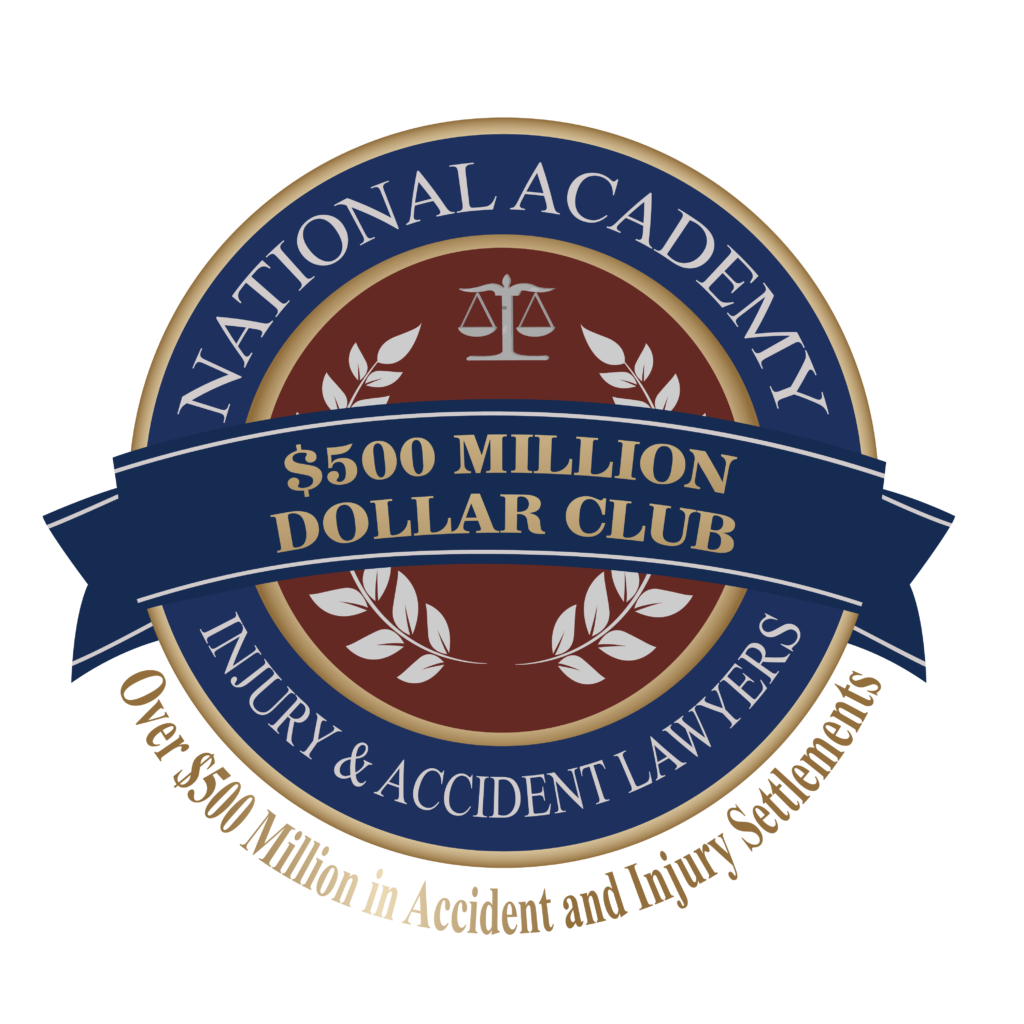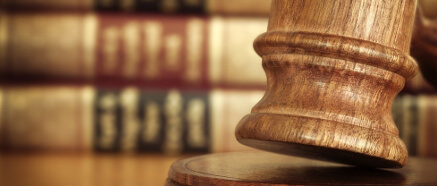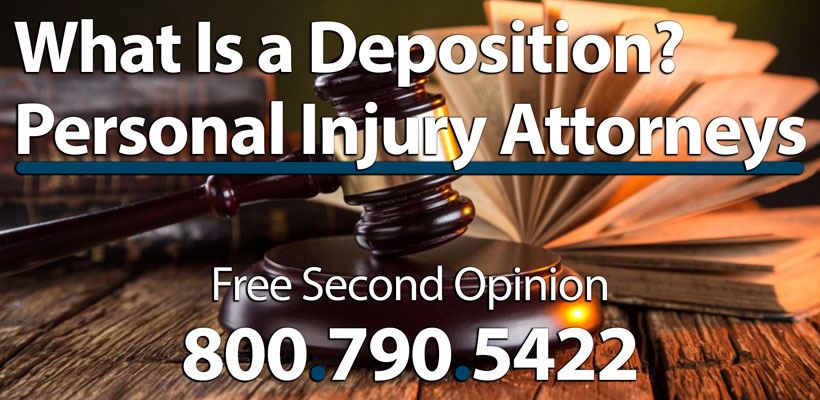In essence, a deposition is a question and answer session between attorneys and witnesses. The witnesses are generally “hostile” to the party that is being represented by the attorney. Many people know that this process takes place in the courtroom during a trial. However, the deposition is another form of questioning witnesses, which takes place outside of court.
The Pretrial Discovery Process
To understand why the deposition is necessary, you must learn about the discovery process, which takes place after you file a lawsuit. Discovery involves both sides requesting and exchanging information with each other in order to gather evidence and formulate the best legal strategy.
After a formal complaint (lawsuit) is filed, it is served to the defendant. The defendant can choose to file their own response, and this is the point where the discovery process begins.
Discovery involves 4 distinct stages that are critical to the litigation process: depositions, interrogatories, asking for evidence, and requests for admissions. So, the deposition is the first stage in a lawsuit for negligence that resulted in bodily harm and/or property damage.

Our Recent Verdicts and Settlements
$2.5 Million
$1.1 Million
$1.5 Million
$600,000
$525,000
$734,851
Who Needs to Attend a Deposition?
In most cases, a deposition must be attended by the following parties:
-
The witnesses that will be questioned by the lawyers
-
Attorneys for the plaintiff and defendant
-
A court reporter who will create a transcript of the deposition
One person that won’t be there is the judge, except in rare and unusual cases. So, you will not hear phrases like “Objection, your honor,” meaning that a lawyer is objecting to the other counsel’s line of questioning.
The judge, however, will refer to the transcript of the deposition and exclude testimony or parts of testimony, thereby preventing the information from being used in court.
What Questions can be Asked at a Deposition?
The questions that are posed by an attorney at the deposition are very calculated, as they are meant to elicit evidence that’s admissible in court. These questions normally start out by asking for general information, such as your name, date of birth, address, and your occupation. Eventually, the lawyer will progress to more probing questions that are directly related to the case. For example:
-
Who was driving the car at the time of the accident?
-
Where and when did the accident take place?
-
Were there any other witnesses at the scene?
-
How soon after the accident did you see a doctor?
-
Do you have a criminal record?
-
What was the nature of your job prior to the injury you suffered from the accident?
-
Have you filed a lawsuit previously?
-
Has anyone ever filed a lawsuit against you?
-
Does your injury prevent you from performing certain tasks that are essential to your job duties?
The Deposition: What Purpose Does it Serve?
We touched on this subject before, but the subject of how a deposition helps you case merits further examination. Here are some of the most important reasons behind why a deposition is necessary.
Understanding Where Your Case is Weak
Because the deposition happens before the trial, it’s an opportunity to find weaknesses in your case and rectify the problem ahead of time. This is different than what happens at a trial, where the goal is to elicit information from the witness that is favorable to your case.
Since the deposition is more of a fact finding mission over anything else, it’s important to let the witness speak freely and not move too aggressively, as you would in a trial. Going after the witness aggressively at a deposition can actually tip the other side off on your case strategy, thereby giving them the advantage in the courtroom.
Obtaining Testimony if the Witness is Unable to Attend the Trial
One or both parties may depose a witness that is unable to attend a trial in person due to the following circumstances:
-
They are suffering from a serious medical condition
-
They will be out of town during the court proceedings
-
There is another legitimate reason that prevents them from appearing at the trial
In these situations, the deposition is videotaped and presented in court, unless the judge excludes it from the evidence that can be used.
Discrediting Hostile Witnesses
Discrediting of witnesses is a frequent occurrence in the courtroom, but this is a process that actually begins at a deposition. As you are aware by now, everything that is said by the witnesses in a deposition is on record. So, the recording of the deposition can be used to discredit anyone whose testimony at the trial contradicts what they said in a deposition.

What If I am Deposed by the Defendant?
It’s understandable that you are nervous about the prospect of being questioned by the other side’s attorney. However, a seasoned personal injury lawyer will help you through the process by telling you what to expect and rehearsing your answers ahead of time. Here are some other tips to help you in the event you are deposed by the defendant:
-
Make sure that your lawyer has thoroughly reviewed all documents and notes that you will using to help you through the deposition. Keep in mind that the other side has the right to examine any information you are bringing and try to use it against you during their line of questioning.
-
Be honest with your answers. Failing to do so may be punishable by criminal sanctions, as the testimony you are giving is under oath.
-
Provide honest answers, but do not provide more information than you have to. This is why it’s important to listen carefully and answer the exact question that is being asked. Going off on a tangent or attempting to provide clarification when you are not asked to do so can end up hurting your case.
-
Make sure to remember your answers and avoid contradicting yourself. This is why being truthful is the best policy.
-
You do need to answer all the questions that are asked, but there are exceptions to the rule. You and your lawyer should have a system worked out so they can signal when you should refuse to answer a question.
-
Accept that the deposition will be lengthy and difficult, and downright uncomfortable at times. Having a lawyer by your side can help you survive the process and find information that’s valuable to your case.
Contact a Los Angeles Personal Injury Attorney

A deposition lays the foundation for a strong and compelling case against the party that wronged you. However, even a single error during the process can cause irreversible damage, which is why you should work with a personal injury lawyer right from the start.
Along with decades of litigation experience, we provide all clients with the Zero Fee Guarantee. You pay $0 when you hire us, and we agree to accept a percentage of your settlement in legal fees. That way, you have the assurance of knowing that you owe us $0 if we fail to secure the compensation you deserve.
Our legal experts are waiting to assist you, so contact our law firm and schedule a free case review.










